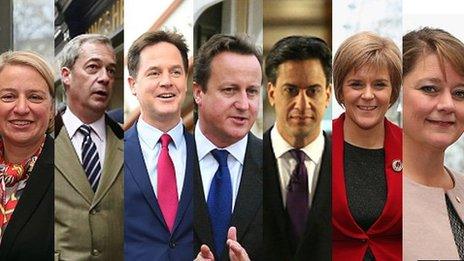Election debates agreement reached
- Published
An agreement has been reached over the televised debates that will take place in the run up to the general election
Broadcasters say a deal over the TV election debates has been reached, with PM David Cameron taking part in one with seven party leaders but no head-to-head with Labour's Ed Miliband.
The live debate with the seven leaders will take place on ITV on 2 April, moderated by Julie Etchingham.
A debate on 16 April on the BBC will involve five opposition party leaders.
The PM and Mr Miliband will separately take part in a live question and answer programme on Channel 4 and Sky News.
The 90-minute programme presented by Jeremy Paxman and Kay Burley will take place on 26 March.
The BBC, ITV, Sky and Channel 4 said the announcement follows talks with the parties.
'Highly valued'
A spokesperson for the broadcasters said: "We're delighted that there will be a debate with all the party leaders during the election campaign. The debate on 2 April will build on the success of the 2010 TV debates which were so highly valued by viewers."
But opposition parties complained Downing Street had been allowed to influence the format of the debates.
Mr Miliband told the BBC: "David Cameron is now in the ridiculous position where he'll go to the same studio as me, on the same night as me, with the same audience as me but he won't debate me head to head as he's running scared.
"I'm going to keep the offer of a head-to-head debate on the table right up to election day as it's what the British people want."
But Conservative party chairman Grant Shapps said he was "delighted" by the agreement.
"I think it's important that this country gets to see what this election's really about, the competence of a David Cameron-led Conservative government or the chaos of, frankly, all the others," he said.
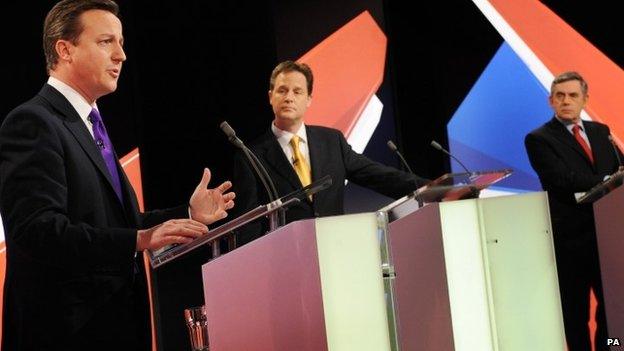
The first-ever election debates in 2010 were watched by 22 million people
The debate involving opposition party leaders will be moderated by David Dimbleby.
It will feature Mr Miliband, UKIP's Nigel Farage, SNP leader Nicola Sturgeon, Natalie Bennett from the Greens and Plaid Cymru's Leanne Wood.
The BBC says it will ensure "fair representation" of the Northern Ireland parties, as well as the Conservatives and Liberal Democrats, to ensure impartiality, although the details of how this will be achieved are yet to be finalised. Earlier this week, the DUP said it was examining whether to pursue legal action against its exclusion from the debates.
There will also be a special Question Time on BBC One, a week before polling day, with Mr Cameron, Mr Miliband and Lib Dem leader Nick Clegg appearing separately on the programme to answer questions from a studio audience.
'Formal offer'
Weeks of wrangling between the political parties and the broadcasters had cast doubt on whether the leaders' debates - first held in 2010 when then PM Gordon Brown, Mr Cameron and Mr Clegg participated in three events - would be repeated before the 7 May poll.
Mr Cameron rejected proposals because they did not include the Greens. But last week the prime minister said while he would not participate in a debate after the start of the campaign on 30 March, he had signed up to a "formal offer" for a new format of TV election programmes, including the one multi-party debate.

The schedule
26 March: Live question and answer programme on Channel 4 and Sky News featuring David Cameron and Ed Miliband, presented by Jeremy Paxman and Kay Burley
2 April: Debate with seven party leaders on ITV, moderated by Julie Etchingham
16 April: Debate between five opposition party leaders on the BBC, moderated by David Dimbleby
30 April: BBC Question Time programme with David Cameron, Ed Miliband and Nick Clegg, presented by David Dimbleby

'Real issues'
Responding to the announcement from broadcasters, a Liberal Democrat spokesman said: "We have told the broadcasters that we will take part in the proposed format, just as we have said we would take part in all the proposed packages to date... despite our strong objections to being excluded from any TV debate or interview."
Mr Farage described the situation as an "utter farce"
He tweeted, external: "TV debates are now so far from the original proposals. Broadcasters should be ashamed. They've kowtowed to manipulation from Downing Street."
Scottish National Party leader Nicola Sturgeon said: "Our preference would have been for broadcasters to stick to their original proposals, and not be pushed around by the Westminster parties, particularly the Tories. However, it is good... we can get on to discussing the real issues of substance."
Green Party leader Natalie Bennett welcome the "end of the debate about the debates," adding that "David Cameron's intransigence has delayed this process, and taken away space in which we might have been debating the future of Britain".
Plaid Cymru leader Leanne Wood said: "No politician should be able to choose whether to be held accountable or not... Though it falls short of the original proposals, I welcome this statement from the broadcasters.
"It's important that people in Wales and the other nations in the UK are presented with a true reflection of the choice facing them."
- Published2 April 2015
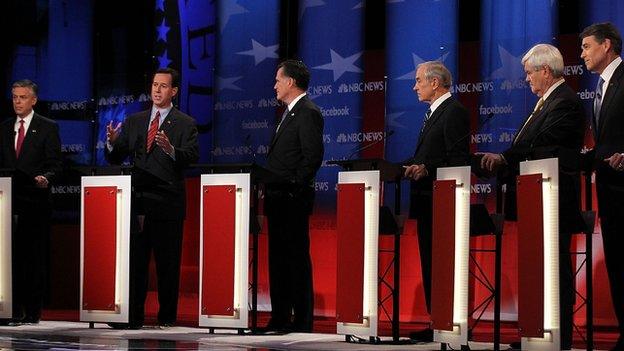
- Published17 March 2015
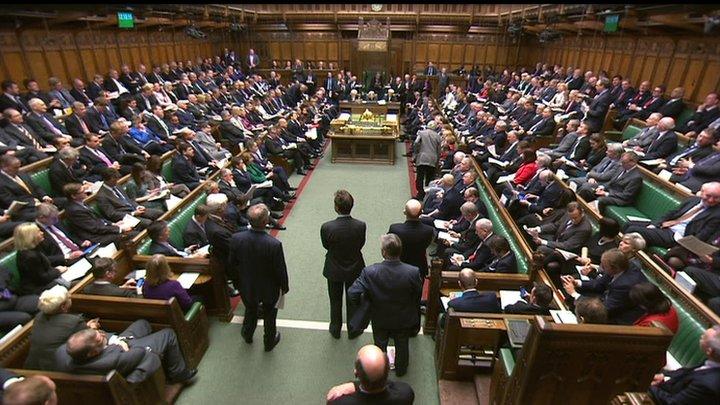
- Published11 March 2015
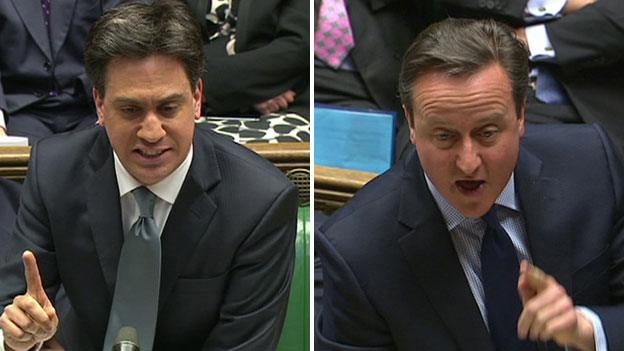
- Published17 March 2015
